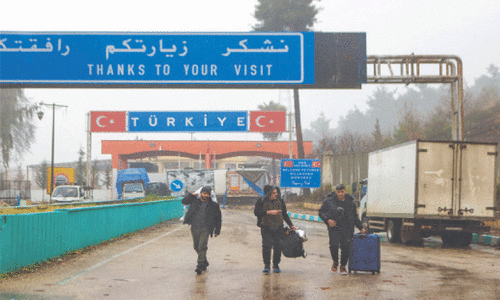ON 26 January 2011, News International passed Scotland Yard three email messages containing possible evidence of crime. Three-and-a-half years on, the investigation launched that day has morphed into 12 operations, and 210 people have been arrested or interviewed under caution about phone or email hacking, payments to public officials, accessing data on allegedly stolen phones and perverting the course of justice.
From that first day, this was not simply an inquiry into allegations of crime but an attempt to rescue Scotland Yard from crisis, to prove it was capable of taking on Rupert Murdoch’s company.
The investigation was codenamed Operation Weeting and given to deputy assistant commissioner Sue Akers, one of the few career detectives senior enough to deal with its complexity as well as its political sensitivities.
What turned out to be more important is that Akers does not march in step. In her first posting as a detective, in Fulham in the early 1980s, she was offered “brown envelopes” — cash bribes from local villains. She refused to take them. Over the next 30 years, she became a specialist in investigating murders, never losing a court case.
Akers based Weeting in a police office block, Jubilee House in Putney, south-west London, partly because it has MI5-approved security, partly because it kept her away from the top brass of Scotland Yard in Victoria. She brought in two detective superintendents — Mark Kandiah to deal with victims of the News of the World’s phone hacking, and Mark Ponting to run the investigation. They made a deal: no cover-up. They would go wherever the evidence led them.
Akers had worked with Kandiah before. She knew he had a good brain, which he would need if he were to untangle the mess of information scrawled into notebooks by Glenn Mulcaire as he hacked his targets. Within 48 hours, Akers and Kandiah realised they would have to come clean and apologise to hundreds, possibly thousands, of people who had never been warned by the original Yard inquiry in 2006 — beginning with telling the former deputy prime minister John Prescott that contrary to Scotland Yard’s denials, dozens of his voicemails had been intercepted.
For Ponting, the inquiry began in the same place: Mulcaire. Like Akers, Ponting had experience of complex jobs. He had run Operation Rize, which raided 7,000 safety deposit boxes, finding criminal cash, firearms and drugs as well as legitimate property. For Ponting’s team, as for Kandiah’s, it was clear the original investigation had been flawed.
During February and March, Ponting’s group analysed the material that had been lying in Scotland Yard’s possession since August 2006. They had a lot to learn — the methodology of phone hacking, the business of “blagging” confidential data, the inner workings of a newpaper.
They made a series of breakthroughs. They saw Mulcaire wrote the name of the journalist who had commissioned his work at the top of his notes, and started to see names recurring. They realised he was hitting targets in groups, that names which meant nothing to them were friends or family of his targets. They also found 14 pages of Mulcaire’s notes about hacking the phone of Milly Dowler overlooked by the original inquiry.
They set out to see if they could match Mulcaire’s work with stories published in the NoW. At first they used an online cuttings service, but started to fear some of the most revealing stories were being removed from the database, so sent officers to the newspaper library in Colindale, north London, to squint at years of microfiched back issues. By April — still relying largely on evidence that had been in police hands for nearly five years — they started to make arrests. As they did so, they seized more material from the homes and desks of their suspects and reached a turning point in relations with News International.
Since January 2011, Akers and NI’s lawyers had been trying to agree a protocol to allow Weeting access to emails and other material held by the company. After talks about privacy and protection of sources, they signed a deal on 25 March. But the Weeting team concluded some of the lawyers were not being as cooperative as needed. On 14 April, Weeting arrested James Weatherup and went to search his desk at the NoW, only to find its contents had been taken to one of the paper’s external law firms, Burton Copeland. Ponting phoned a senior partner, Ian Burton, and threatened to arrest him if he did not hand over the material. Burton complied.
News International withdrew its lawyers from the front line and replaced them with two executives, Will Lewis and Simon Greenberg. More doors now opened. Police began to retrieve some of the 300m emails that had been deleted from the company’s servers and to search them for key words. In June, News International disclosed email messages which suggested payments had been made to police in the royal palaces. Kandiah set up Operation Elveden.
By late June, they were scoping a third inquiry, Operation Tuleta, to look into allegations of email hacking and other access to confidential data.
Since then, each operation has grown like bindweed. Weeting found that an NoW journalist, Dan Evans, had acted as the paper’s second specialist phone hacker. Evans cooperated, making allegations about his time at the NoW but also earlier at the Sunday Mirror. Two more operations were launched. Elveden got access to the NI accounts department in Peterborough, which disclosed a history of cash payments, some to public officials. So Elveden opened a new front, investigating the Sun, uncovering more than 400 suspect payments.
Tuleta picked up more than 110 allegations of illegal access to data, including claims that ministerial computers had been hacked, spawning five new operations. But progress was not easy. The operations approached dozens of former NoW journalists, but none — other than Evans — were willing and able to act as an effective witness. And Weeting’s relationship with NI ran into a cul-de-sac in April 2012 when Akers confirmed the possibility the company itself would be charged. For several weeks, cooperation ceased and then resumed with the company imposing boundaries that yielded far less material.
The future of Weeting and its linked operations is in some doubt after the Old Bailey jury rejected phone-hacking charges against Rebekah Brooks and Stuart Kuttner. But even if the CPS abandons all future prosecutions for phone hacking, there are a dozen more trials scheduled at the Old Bailey arising from Elveden and Tuleta and potentially more if the CPS charges others who have been arrested or interviewed.
—By arrangement with the Guardian
Published in Dawn, July 4th, 2014














































Dear visitor, the comments section is undergoing an overhaul and will return soon.